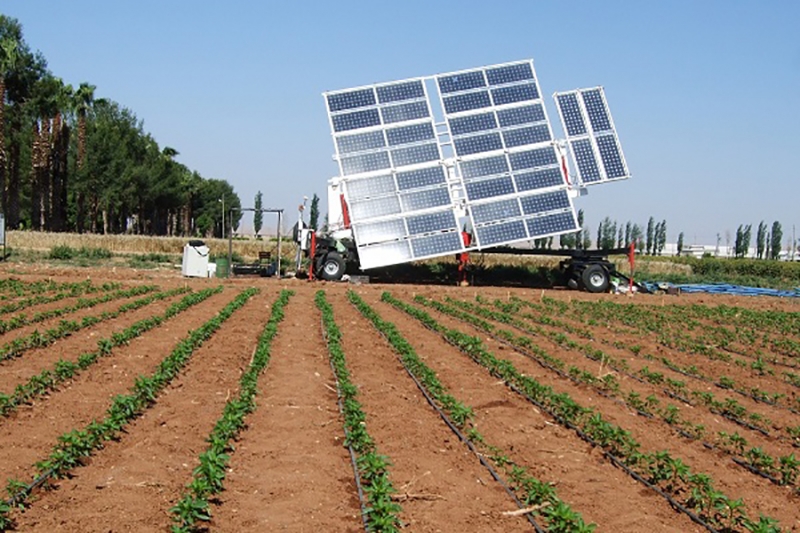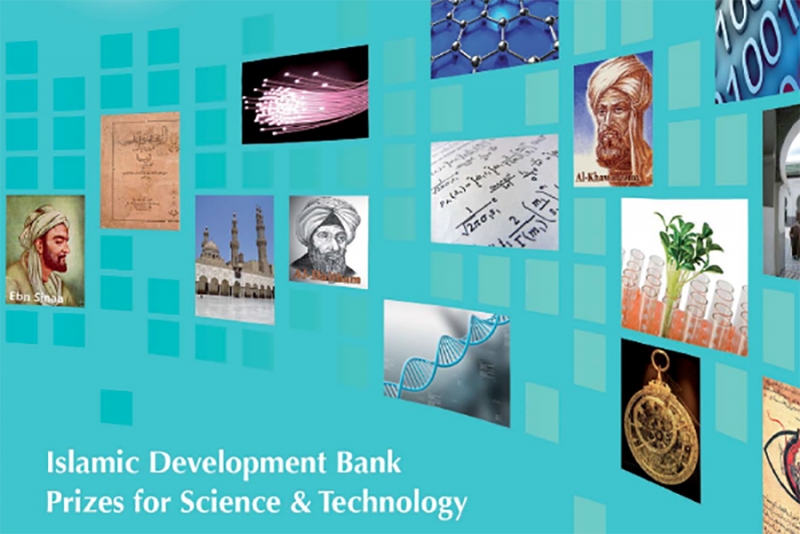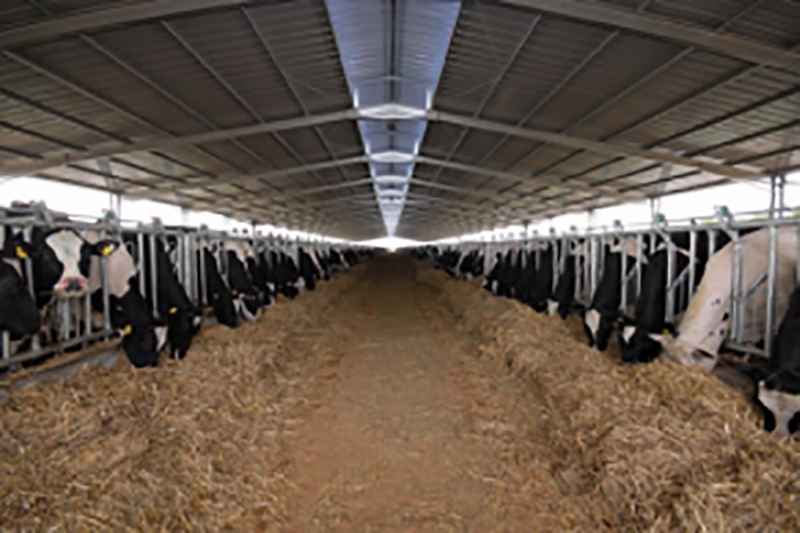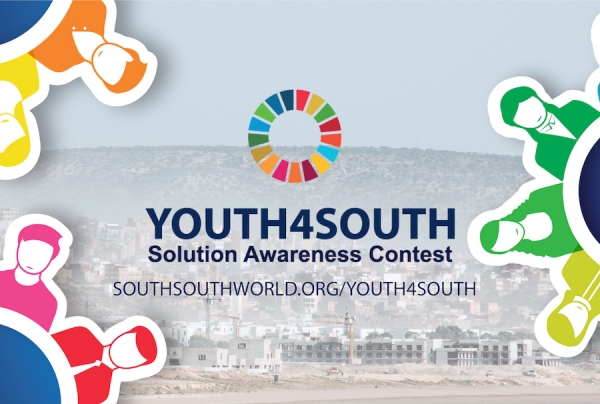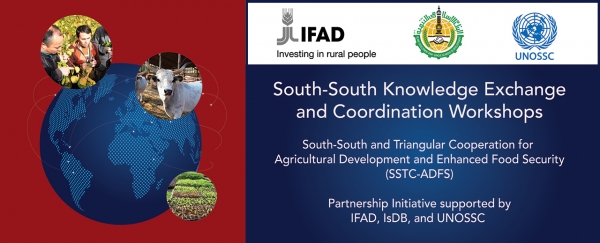 SSDA Solutions
South-South Development Academy
SSDA Solutions
South-South Development Academy
Blog
In Turkey, the wastewater utilization for agricultural purposes, in particular, by plants is an important strategy for water resource conservation aimed to use absorbent plants for reduction of pollution parameters, reduce environmental pollution, create a cleaner environment' to reuse wastewater for different purposes, to improve and maintain water quality; to provide recreational area.
Wetlands are considered as low-cost alternatives for treating municipal, industrial and agricultural effluents. The main advantages of utilizing effluents for irrigation purposes is that many of the substances present in wastewater can be used as nutrients for crops, and would otherwise probably contaminate the receiving water body, and there is the additional advantage that less chemical fertilizers are needed. The salinity level of wastewater, organic and inorganic toxic compound content are usually not high enough to prevent its use for irrigation purposes.
Compared to conventional treatment systems, wetland technology is cheaper, easier to operate and maintain. Easy construction of these systems even with simple technology is the main advantage of these systems. Minimal fossil fuel is required and no chemicals are necessary. An additional benefit of using wetlands for wastewater treatment is the multi-purpose sustainable utilization of the facility for various aspects such as swamp fisheries, biomass production, seasonal agriculture, water supply, public recreation, wild life conservation and scientific study.
Since introduction of the solution in Turkey:
- 5208 wetlands in rural areas for natural wastewater treatment have been constructed.
- Different types of constructed environmental friendly wetlands were introduced to the villagers.
- Use of native plants in the system is examined.
- Wastewater treatment techniques and reuse of wastewater in village were introduced to the villagers and farmers.
- Freshwater resources have been saved
Budget: Cost-contribution of each villager is 15USD (for community above 1000 people).
Contact information:
Turkey
International Agricultural Research and Training Center
Address: Camikebir Mah. Çavuşköyyolu Sokak No: 9 Menemen-İzmir/TÜRKİYE
Contact person: Dilek Kahranan, Cenk Kucukyumuk
Telephone: +90 232 831 10 52
Fax: +90 232 831 10 521
Email: This email address is being protected from spambots. You need JavaScript enabled to view it.
http://ssda.southsouth.world/ssda-blog/author/42-webadmin?start=300#sigProIdb9a5697dc7
Problem: For many agricultural needs, the alternative is solar energy. Solar systems provide the alternative energy, however, there is a demand to irrigate where it is needed, and when it is needed for crops, for livestock, and for people.
Solution: The mobile solar irrigation machine is a portable photovoltaic powered water pumping system.
Goals and objectives: The solar-powered irrigation machine aims to be transferable to anywhere and be able to irrigate more than one field.
Implementation: The solution designed and produced by Harran University and Cukurova University with support of the Ministry of Agriculture, Food and Livestock of Turkey.
The system sets an example to the utilization of environmental friendly renewable energy resources through integration with modern agricultural irrigation systems. In contrast to the conventional PV- supported systems this machine is mobile. It tracks the sun automatically in two axes and has a self-cleaner unit.
The mobile solar irrigation machine operates trouble-free when set-up to irrigate a field during day-time. It can be used for 14 hours during high irrigation season. This requires the establishment of a pump with enough capacity to provide the required amount of water.
Achievement: The system has been awarded a patent by the Turkish Patent Institute.
Mobile solar irrigation machine can be used inevitably during power-off period in some irrigated areas of the country. The system could also be utilized as a generator during non-irrigation season. The system owner can transfer the produced electricity to the national grid through a bi-directional electric meter and benefit from the feed-in tariff during off-season.
The machine installation cost per field cost is considerably lower. If located in a field without an existing power electricity line, mobile irrigation machine pays itself back in one year. The existing PV array of the machine is a prototype and could be easily be designed in smaller or larger scale depending on the underground water level, and irrigation area. The prototype (pumping 70 tone/hour water at max. 170m depth) costs 25000$.
Partners: Ministry of Agriculture, Food and Livestock of Turkey
Contact information:
Turkey, GAP Tarımsal Araştırma Enstitüsü Müdürlüğü
Address: Paşabağı Mah. Recep Tayyip Erdoğan Bulvarı No:106 PK:75 63040 Haliliye / ŞANLIURFA
Contact person: Ümran ATAY
Telephone: +90 (414) 313 28 83/84
Fax : +90 (414) 313 28 82
E-mail : This email address is being protected from spambots. You need JavaScript enabled to view it.
http://ssda.southsouth.world/ssda-blog/author/42-webadmin?start=300#sigProId9e810ae23a
Agriculture represents a major share of the Uzbek economy contributing 20% to GDP, 30% to employment and 40% to exports and has grown rapidly over the past decade. This growth has attracted many new entrants all along the commodity value chains from input providers and producers to post-harvest processing, marketing and retail sales actors. These new economic actors are in need of reliable, relevant and context specific information in a local language in a mobile format.
MEVA is an android based mobile application that was developed under USAID’s Agricultural Linkages Project(ALP) project with support of the Ministry of Agriculture and Water Resources of Uzbekistan in 2015
The MEVA Application provides a “gateway to information” for Uzbek farmers, particularly those involved in orchard and vineyard production.
The purpose of the solution is to provide information in a portable, flexible and easy to use digital format with images, videos and brief instruction to increase knowledge for more efficient and effective decision making by economic actors. The App provides in depth information and tools to support optimal species selection, equipment and input purchasing, integrated pest management, orchard and vineyard management, and investment planning. Information is presented through interactive displays that are complete with pictures, customized “calculators” to support decision making, safety information, and links to additional resources.
The application uses a local database to store all the digital content in the device and to operate offline that enable users in areas with low or no mobile reception take advantage of this feature. The installation file of the app can also be transferred to another device using Bluetooth or any other File Sharing protocols in order to avoid internet charges.
ALP has developed a library of training and informational materials that can be used in the context of the fruit value chains. Links for materials are available in the app and can be downloaded on PDF format. Application was developed in Uzbek language aiming for audience in Uzbekistan. However, the application is in public domain and can be repurposed for other regions as well.
The MEVA application is the first horticulture app in Uzbekistan and is being used by institutions, farmers, students and consultants as a study guide and as a quick reference. Its implementation led to positive changes in horticulture production, in particular:
- Farmers detect the pest or disease problem on their crops much faster than before. This has increased the crop and fruit quality and given a higher value for their product.
- The MEVA application has also decreased the expenses of start-up farmers on external consultancy as it has the most needed information.
The application is highlighted as one of the visually rich applications in a local aggregator website called Afisha.uz.
The application was officially released to Google Play market on 7 April 2015 and can be downloaded for free from the following link:
https://play.google.com/store/apps/details?id=com.finnet.mevaapp&hl=en
Budget: around 40000 USD, including the work of an illustrator.
Partner: The Ministry of Agriculture and Water Resources of Uzbekistan.
Contact information:
Representative office of” Development Alternatives Inc.” in Uzbekistan
Contact person: Sardor Kadirov, IT-specialist
Telephone: + 998977017510
Email: This email address is being protected from spambots. You need JavaScript enabled to view it.
http://ssda.southsouth.world/ssda-blog/author/42-webadmin?start=300#sigProId05651e1cc9
Food safety is becoming increasingly important. One of the solutions to fight against food forgery is the DNA analysis aimed at identifying the origin of meat even in a processed form.
The solution is a result of the consortium`s project, which was set up for the research on the methodology of meat DNA testing in 2014-2015. Consortium consists of six members: three research institutes (Research Institute for Animal Breeding and Nutrition (ÁTK); Central Food Research Institute (KÉKI); Agricultural Biotechnology Center (MBK), two enterprises dealing with biotechnology (Biomi Ltd, WESSLING Hungary Ltd.) and Olmos and Tóth Ltd, an enterprise concerning animal production.
The objectives of project were to work out a diagnostic methodology in order to help:
- Follow-up and identify the product made from “Mangalica” pig (the first experiments were carried out on Mangalica pigs;
- Unveil the forgeries of food products;
- Ensure the clarification of the food law background and protection of “Mangalica” product;
- Set up a databank of DNA and body tissue to ensure the maintenance of the breed and the production of high quality meat products;
- Create a database to follow-up the genetic properties.
- The process of DNA-analysis by specific markers includes sampling the meat (processed meat too) to investigate its origin. DNA analysing methods are getting cheaper today, and so costs of the control procedures are decreasing.
The methodology is based on a Mangalica-specific sequence examined and owned by Hungary and uses two approaches:
- One approach is to use QPCR method in laboratory environment. It requires sample collection and transfer to the lab. Results are given as percentage ratio of Mangalica even in mixed products (e.g. sausage or liver pate). The specific sequence is not available in the literature. This method requires one Mangalica specific primer pair with a probe, and one pig specific primer pair with a probe. For reliability reasons at least three parallel reactions are required. Sample processing might require a few hours. Price per sample is around 10 EUR.
- Another approach is to use specific sequence on the spot (laboratory or well trained staff are not required). Results are given as a "Yes” or "No” answer to the question: "Does a given product contain Mangalica meat?” Sample processing is extremely simple. This method is described in the literature.
Approaches require different equipment:
- QPCR machine, usually not portable. Sample preparation takes at least 1-2 hours. Reaction time is around two hours. Simplest QPCR is available from 3000 EUR.
- Fast quantitative test with portable minilab (TwirlaTM). Sample preparation takes 15-20 minutes. Reaction time is around 20 minutes, followed by a 5-minute detection on a test strip. (http://link.springer.com/article/10.1007/s12161-015-0261-0). Price is around 300 EUR. This test requires test strips and isothermal amplification kit (TwistDx Company) and specific primer-probe set. Price per sample is around 10 EUR.
- Equipment: TwistaTM: Sample preparation is from 3 minutes to 1-2 hours. Reaction time is around 10 minutes. Price is around 250 EUR. The technology can be developed on other domestic animal breeds too.
The main impact of the solutions is rise of quality and reliability of products. It can stabilize a market of those special products where breed is important as a “base material”. The solution elaborated in every detail can serve as a standardized methodology for the official control to check sold meat products.
Partners: Research Institute for Animal Breeding and Nutrition (ÁTK) (as main implementor); Central Food Research Institute (KÉKI); Agricultural Biotechnology Center (MBK), Biomi Ltd, WESSLING Hungary Ltd., Olmos and Tóth Ltd.
Contact information:
Hungary Ministry of Agriculture
Tamas Szobolevszki, Head of the Animal Breeding Unit:
This email address is being protected from spambots. You need JavaScript enabled to view it.
National Agricultural and Innovation Centre:
This email address is being protected from spambots. You need JavaScript enabled to view it., This email address is being protected from spambots. You need JavaScript enabled to view it.
http://ssda.southsouth.world/ssda-blog/author/42-webadmin?start=300#sigProIdecec228b11
The Hungarian National Rural Network (HNRN) is an umbrella network of private and public networks, such as the Agricultural and Rural Development Advisory Networks and the Network of Independent Civil Actors and other organizations involved in the rural development. The Network was created to organize all the actors, i.e. government, local government, civil society, business organizations and professional bodies) for better cooperation between them and coordination of their activities, to build practice-oriented inter-regional and international relations, and to represent the Hungarian national interests and values.
The primary goal of the HNRN is to support the implementation of the Hungarian Rural Development Programme, and to focus on increasing the social integration and economic development of rural areas.
The main tasks of the HNRN are:
- To develop and enhance channels of communication through information activities;
- Exchange of experiences and methodology to stimulate dialogue and improve the overall performance and success of the Rural Development Programme (RDP) at the local, regional, national, and international levels.
The solution focus on the exchange of experiences and know-how, the dissemination of best practices, the provision of trainings for rural actors, the organisation of studies and conferences, the support for inter-territorial and transnational cooperation and the provision of information development opportunities.
Network services are provided by the Permanent Secretariat with the support of the Ministry of Rural Development.
The network’s qualitative target is to deliver useful and maintainable services, including regular newsletters and invitations for rural trainings and professional conferences from the network managements, thereby reaching as many rural stakeholders as possible through network registration. Registration for membership is open to anyone involved or interested in agriculture and rural development. There is no membership fee and no obligations arise from registration.
Contact information:
Hungary
Ministry of Agriculture of Hungary
Department for Agricultural Development
Contact person: Mátyás Szabó
Chief of Department
Telephone: (+361) 7953570
Email: This email address is being protected from spambots. You need JavaScript enabled to view it.
http://ssda.southsouth.world/ssda-blog/author/42-webadmin?start=300#sigProId276dd5b20f
Girdling, as practiced in commercial vineyards, consists of the removal of a ring of bark from 3 to 6 mm wide entirely around a selected trunk, cordon, or cane of the vine to: (1) hasten maturity; (2) aid uniform berry coloring; (3) increase the size of berries and clusters; and (4) improve berry set or increase the number of berries in a cluster. Previously, only seedless varieties were subject to or recommended for girdling elsewhere in the world.
The solution offers application of the girdling technique for seeded grape varieties which distinguishes it from previous efforts. The solution was tested and implemented by the DAI Global, LLC in Uzbekistan while promoting girdling in Uzbekistan since 2013.
When girdled the energy flow generated in leaves is temporarily redirected toward clusters and berries resulting in earlier ripening time, increased berry and bunch size, and better coloring. Grapevine girdling only requires a 3 to 6 mm girdling knife. Girdling knives have two blades spaced 3-6 mm and cost between $15-30. Grapevines can also be girdled using a regular knife through two separate cuts but require greater mastery of the technique.
The experiment held from 2013-16 confirmed girdling’s impact on early ripening seeded table grape varieties. Berries increased in size by 10 to 30 percent, ripened 15 to 30 days earlier, and exhibited better uniform coloration in the local seeded varieties (red Vitis Vinifera Rizamat and Vitis Vinifera Andijon Qora). The optimal time to apply girdling is the period post- bloom until the start of berry coloring. It is recommended to apply this technique on mature producing grapevines (at least 4 to 5 years old).
In Uzbekistan, girdling enabled early ripening which contributed to higher incomes through early sales of the girdled grapes obtaining prices between 50 to 100% higher than the regular ripening period. In addition, berry coloring was more uniform on girdled vines. Girdling of seedless and seeded grapes enables early and extended supply of highly demanded varieties of grapes for both local and export markets.
Partners: “Dolanalik Bogbon Mevasi” farm enterprise in Andijan Province; “Azizbek AXA” in Fergana Province; the Andijan Agricultural Institute; USAID’s program in Uzbekistan.
Contact information:
Representative Office of Development Alternatives Inc. in Uzbekistan,
Address: 104A Kichik Beshagach Street, Tashkent
Contact person: Gholibjon Mahmudov
Telephone: +998 87 701 7502
Email: This email address is being protected from spambots. You need JavaScript enabled to view it.
http://ssda.southsouth.world/ssda-blog/author/42-webadmin?start=300#sigProIdd1c7338434
In order to reduce the water pollution caused by trout farms Turkey has been implementing the water quality improvement program since 2012. As part of it, the General directorate of Fisheries and Aquaculture, Ministry of Food, Agriculture and Livestock introduced effluent management (treatment), to prevent the potentially negative effects of trout farm and conflicts with other users, especially in places where fish farms have to be considered as point-source polluters. The use of drum filters for the effluent treatment in trout farms in Eşen Region, Muğla, Turkey was made compulsory by the government.
To pilot the solution fish farms were selected in Eşen Stream area, Ören Town, Seydikemer, Muğla. This region has a particular significance because a number of fish farms are located very close to each other on one river and the farms discharges are also very close to one another. Therefore waste removal through final treatment facilities (e.g. screen filters) is needed to allow the water to be used by the multiple users. A total 10 drum filters were set up water at the outlet water of the farms to evaluate the effectiveness of the filters over one-year period.
The evaluation results showed that micro-screen rotary drum filters with a mesh size of 200 µm achieved a removal efficiency of average 28% and 48% for total and farm-derived suspended solids, respectively, in flow-through aquaculture farm effluents with high inflow rates.
The implementation of the solution also positively affected relations between users of the water resources, such as fish farmers, agricultural farmers and local environment agencies that was formalized in an agreement.
Budget: There is a requirement of one drum filter per 250 ton fish production and its cost is 20.000 USD when the outflow rate of 1 m3/sec is considered.
Partners: Ministry of Agriculture, Food and Livestock of Turkey, Muğla Rainbow Trout Aquaculture, Mediterranean Fisheries Research and Training Institute
Contact information:
Mediterranean Fisheries Research and Training Institute
Name and title: Dr. Mehmet Ali Turan KOÇER (Fisheries Engineer)
Telephone: +90 242 251 0587
Email: This email address is being protected from spambots. You need JavaScript enabled to view it.
http://ssda.southsouth.world/ssda-blog/author/42-webadmin?start=300#sigProId4d66e3bb1b
The project focused on local food market formation through marketing environmentally safe (green) products made by private farms for people who care about their health and think about as they consumed foodstuffs. The aim of the project is to link consumers and producers of environmentally safe products. The main initiators of the project were consumers – a young Minsk family that started with satisfying their own needs for environmentally safe products. After studying foreign experience, initiators of the project started its implementation. They began collecting all necessary information to choose suppliers. The project started in 2012, and represents the pioneer initiative in the area of organic food marketing in Minsk region of Belarus.
The lack of clear regulations regarding ecological food, forced to develop their own ones: so, a farmer who is involved in agriculture, should not use chemicals to protect products - herbicides, pesticides and inorganic fertilizers; those involved in animal husbandry should not use feed, at least purchased from outside the farm. All these regulations, however, closely refer to and correlate with organic agriculture practice performed in European countries. Now the project is cooperating with 15 farmers, and is actively searching for new suppliers. The customers: consumers of environmentally friendly products are most often young families with small children who are primarily interested in high-quality food products that are needed for harmonious growth and development of children. Recently, however, more and more people of older generations become project clients. People with health problems, such as allergies to pesticides, are also among the customers of the project.
Customers, who are mostly people with small children, were found through social networks and Internet, as well as by the means of the so-called “word of mouth” advertising. Managers collect orders through online web-site and then organize delivery. In Belarus both customers and environmentally friendly agricultural producers are not widely spread, and now delivery is only once a week.
Impact of Solution:
The project implementation results in thousands of Minsk residents receiving environmentally friendly products every week. The basic principle of the project is openness. The project provides details about the farmers that offer products. Each farmer’s webpage contains a story about its activities and products. Farmers, alongside with the organization bear responsibility for quality. In case of no satisfaction with the product, the customer is getting the money back.
Benefits for producers and consumers involved in this local food market:
- Producers operating in the project increase their profit through having direct sales channel for their products, whereas previously they could only sell it through their usual channels, and their products were mixed and blended with the whole mass of products. In this project, they are individualized, products are sold under the name and are green labeled;
- Producers communicate with like-minded people, gain new knowledge, there are certain types of support offered and provided to environmentally friendly producers;
- Consumers get healthy foodstuffs, know conditions of the producer and the technology used to make it. In addition, the products are delivered to the door as it is convenient for families with small children.
Similar initiatives could be implemented in other countries. To succeed it is necessary:
- to have comprehensive development and a link “consumer-producer of green-labeled” products;
- to form an initiative group that would be ready to overcome difficulties of the launch period;
- to determine in what form the project would run, and what tools will be used to promote products (a web site, direct sales, specialized shops, sections in department stores and others);
- to have information support for the project
Initially, the project involved only one family, however, with time as the number of users has been constantly increasing, and the number of farmers and their geography expanded considerably.
Solution budget
US$ 10,000 (a car; means to rent premises, procurement of containers and moderate working capital). Joint efforts resulted in creation of a website - ecaeja.by – major trading facility of the project.
Contact information
LLC ‘Ecaeja’ 09.2015
Tel: + 375 29 7724412; + 375 29 5162281
E-mail: This email address is being protected from spambots. You need JavaScript enabled to view it.
Traceability and value chain solutions have been introduced to the Egyptian agro-industries since 2004 with the support of UNDO. The aim is to strengthen agricultural value chains and ensure that, in terms of quality, safety and traceability, Egyptian food products are safe for consumption and do not encounter barriers to trade.
The solution offers the followings:
- Upgrading supply chains in response to local and international market demand through enhancing competitiveness, productivity, and compliance with. international standards and traceability requirements.
- Introducing integrated solutions to reduce post-harvest losses and improve cost efficiency throughout the supply chain.
- Upgrading supply capacity by promoting group and contract farming and enhancing demand and supply linkages.
- Improving competencies of human resources throughout the supply chain by providing customized qualification programs and supporting educational institutions to meet business demand.
- Strengthening export potential of the agro-industrial sector by enhancing compliance with quality specifications and environmental requirements.
- Exchanging experience and knowledge at the regional level on traceability and related standards, and transferring advanced technologies in the agro-industrial field.
By securing exports in compliance with international standards the traceability system improves working conditions for workers and achieves safer jobs.
The actions taken have raised awareness on value chain approaches and built the capacity of agro-industry actors through the trainings and technical assistance in implementing traceability systems, starting from simple paper-based systems to complex software assisted ones. In addition, the system has developed local software with better customization in terms of environment and language which was transferred to several other countries in the Arab region and beyond it, such as Tunisia, Algeria, Morocco, Lebanon, Ghana, India, Vietnam, Moldova and South Africa.
Partners: UNIDO Egypt, Ministry of Trade and Industry and Ministry of Agriculture
Contact details:
UNIDO Regional Office in Egypt
2, Latin America Street, Garden City, Cairo - Egypt
Alaa Fahmy, National Programme Officer
Tel. + (202) 227943477
Mob. +20 (0)1000397575
Fax + (20 2) 27921199
Email: This email address is being protected from spambots. You need JavaScript enabled to view it.
Geographic focus: All the Arab states; all the 56 member countries are eligible to participate in this Programme, including the Arab states
The S and T programme focuses on cooperation for knowledge and technology transfer and partnership in scientific research among member countries. It promotes and encourages the acquisition and dissemination of knowledge through activities such as short-term assignments of experts, exchange of scientists, networking amongst associations of scientists, organization of on-the-job training courses as well as conferences. The activities financed under the S and T are based on a South-South approach aiming at transferring proven technologies among the member countries and at contributing to capacity development. Specifically, the objectives of the S and T Programme are two-fold:
- To promote human and institutional capacity enhancement
- To acquire and disseminate knowledge related to the field of science and technology
Modalities and Procedures
To be eligible to benefit from this programme, all the applications must be supported and endorsed by the Office of the IDB Governor or the National Focal Point for the country concerned. In terms financing, since the programme is based on a tripartite approach, financial contributions are expected as well from the donor country and the beneficiary/host country. As part of capacity development in the Member Countries, S and Tutilizes three vehicles for the promotion and accomplishment of the objectives of the programme.
- Exchange of Scientists between centres of excellence A trilateral cooperation is established between an advanced centre in a given field, one or more less advanced counterpart centres in the same field with IDB as a facilitator.
- Recruitment of Experts The experts are recruited to help IDB member countries to prepare a specific scientific study or to provide advisory services for capacity building purposes. The transfer of knowledge and know how of the expert to the member countries is a key feature of the programme, which complements the capacity building efforts of the beneficiary in the desired scientific field. In this regard, the beneficiary country must specify its needs and the desired assignment in details to be undertaken by the experts. In addition to the nature and tasks to be performed under the assignment, a definite period for execution of the assignment should also be stipulated, while taking into account that the maximum period for an expert`s assignment is six months.
- Provision of On-the-Job Training (OJT) OJT vehicle aims to augment the skills and enrich the experience and know-how in science and technology of technical and professional staff. It consists of the two main types, namely Formal Training and Study and Familiarization Visits.
- Formal Training
Training courses are organized for the middle management and technical officials in public or private organizations in order to upgrade their skills and knowledge and improve proficiency in their performance.For the organization of training courses, the beneficiary institution/country must recommend candidates for short-term training (maximum 4 months) and it must ensure to prepare clear justifications highlighting their needs and the area in which they would like to enhance their knowledge and expertise. - Study and Familiarization Visits
These visits are targeting the senior-level officials at the level of heads of ministries, organizations and departments with the objective of acquainting them with the activities and structure of similar institutions/ industries of other member countries and helping them in enriching their experience and knowledge.
- Formal Training
- Organization of Workshops and Seminar Seminars and workshops provide the beneficiary countries with the opportunity to exchange experiences on a specific science-related subject and, hence enhancing their knowledge and understanding of that subject. Therefore, this sort of events plays a crucial role in disseminating knowledge on science and technology between the relevant institutions from member countries. In addition to this, seminars and workshops facilitate the networking among members in scientific institutions. For the workshops and seminars, the countries and organizations presenting seminar/workshop proposals are required to submit detailed information on the background and objectives of the respective seminar/workshop and to justify how these events would address the needs of the country. If any professional speakers are required for the event, the Organizer would send to the potential speaker candidates a brief information bulletin giving a synopsis of the content of the seminar/ workshop, the programme, the target group and the qualifications and experience they should possess.
Benefiting Countries:
Egypt, Jordan, Kuwait, Saudi Arabia
Total Budget (USD): Around 10 M
Focal Point and Contact:
Riad R. Ahmed, Br. Manager:
Moncef Soudani, Br. Project Officer
Islamic Development Bank Building
Qasr Khuzam Street 5925, Jeddah
Saudi Arabia
Email: This email address is being protected from spambots. You need JavaScript enabled to view it., This email address is being protected from spambots. You need JavaScript enabled to view it.
Animal diseases represent a major constraint to production, trade and livelihoods in the developing countries. Animal movement and the livestock trade, within and between various countries in the Arab region are the major means of transmitting and spreading Transboundary Animal Diseases.
To follow the livestock from one point in the supply chain to another, either backwards or forwards, in 2003-2004 the Ministry of Agriculture and Fishing of Morocco initiated the project on introducing the national System of Identification and Animal traceability (SNIT).
The development of the project SNIT went through three stages according to the contract terms established by ONSSA:
- To supply the identification equipment and material, as well as the IT solution in a standard version;
- To develop specific functionalities, install, configure, and implement all the resources solicited and integration tests;
- Provide training for the local agents and Operational Assistance.
As a tool for management of animal diseases and food safety traceability, the SNIT – "Système national d’identification et traçabilité animales" proposed by Digidelta Software allows tracing the history of each animal including movements and events throughout its life through the use of electronic chips making use of radio frequencies. Each animal now is carrying a pair of ear tags with a unique 16-digit dialing. This information can be retrieved at any time, in the form of reports or dashboards to enable decision makers to take appropriate action. This software allows the registry of animals identified with visual and electronic ear tags, not only all the data referring to the animal but also to its breeder/owner, the farm, its sanitary condition and other relevant information. It should also be noted that the software is prepared to work in the avian sector, in which case, the breeder can choose how to manage his animals including sanitary information.
All the information stored in the database is available to the user according to his/her level of permission, maintaining the transparency and security of the data.
SNIT.mobile was developed to function on devices with the operating system Windows CE and synchronizes with the central database in 3 different ways: Directly with the application SNIT, by using SNIT.Transfer, which is a desktop application and via 3G, directly from the mobile devices.
Achievements: By integrating this identification formula, Morocco is now aligned with international standards and effectively improves the health program management and production performance control. Traceability systems are important, effective tools that can be used for the protection of animal health, public health and food safety. They can help reduce response time, thereby limiting economic, environmental and social impacts of emergency situations such as disease outbreaks. Morocco is the first and only country in the north of Africa to have a system capable of ensuring traceability.
By integrating this identification formula, Morocco is now aligned with international standards and effectively improves the health program management and production performance control. Traceability systems are important, effective tools that can be used for the protection of animal health, public health, and food safety. They can help reduce response time, thereby limiting economic, environmental and social impacts of emergency situations such as disease outbreaks. Morocco is the first and only country in the north of Africa to have a system capable of ensuring traceability.
By integrating this identification formula, Morocco is now aligned with international standards and effectively improves the health program management and production performance control. Traceability systems are important, effective tools that can be used for the protection of animal health, public health and food safety. They can help reduce response time, thereby limiting economic, environmental and social impacts of emergency situations such as disease outbreaks. Morocco is the first and only country in the north of Africa to have a system capable of ensuring traceability.
Budget: the system costs 120 million dirhams.
Contact information:
The Moroccan Interprofessional Federation of Milk (FIMALAIT);
Address: Avenue Al Arz, Résidence Al Arz n° D5 Hay Riad Rabat, Morocco
Phone: +212 (0)537 71 54 73
Contact person: Dr. A. BENLEKHAL
Email: This email address is being protected from spambots. You need JavaScript enabled to view it.
The regional initiative for monitoring access to water and sanitation is aimed to establish and institutionalize a regional mechanism for monitoring and reporting on access to water supply and sanitation services in the Arab region through a set of additional indicators which was proposed and later approved by the Arab Ministerial Water Council as the basis for monitoring access to water and sanitation services (MDG+ Initiative).
In light of the current global debate to shape the position of water within the post-2015 global development agenda and the global trend towards a human rights approach for water and sanitation the MDG+ initiative is an opportunity to harmonize national systems on a global by:
- Enhancing the regional and national monitoring capacity.
- Establishing a regional data management platform.
- Institutionalizing a regional monitoring program.
- Supporting regional dialogue and contributing to the global policy debate.
The purpose of the additional indicators is to consider not only accessibility to improved infrastructure, but also reliability, affordability, sustainability and quality of service provided. The additional indicators were developed in the process of regional inter-governmental consultations, involving Arab Governments and institutions.
Partners: UN ESCWA, SIDA, Arab Ministerial Water Council
Contact details:
Mr. Mohamed Al-Hamdi
Sustainable Development and Productivity Division
UN-ESCWA
Tel: +961 1 978 524
Fax: +961 1 981 510
Email: This email address is being protected from spambots. You need JavaScript enabled to view it.
Website: www.escwa.un.org
Mr. Jarrah AlZubi
Head of MDG+ Unit
Arab Countries Water Utilities Association (ACWUA)
Office: +962-6-5161-700
Fax: +962-6-5161-800
Email: This email address is being protected from spambots. You need JavaScript enabled to view it.









